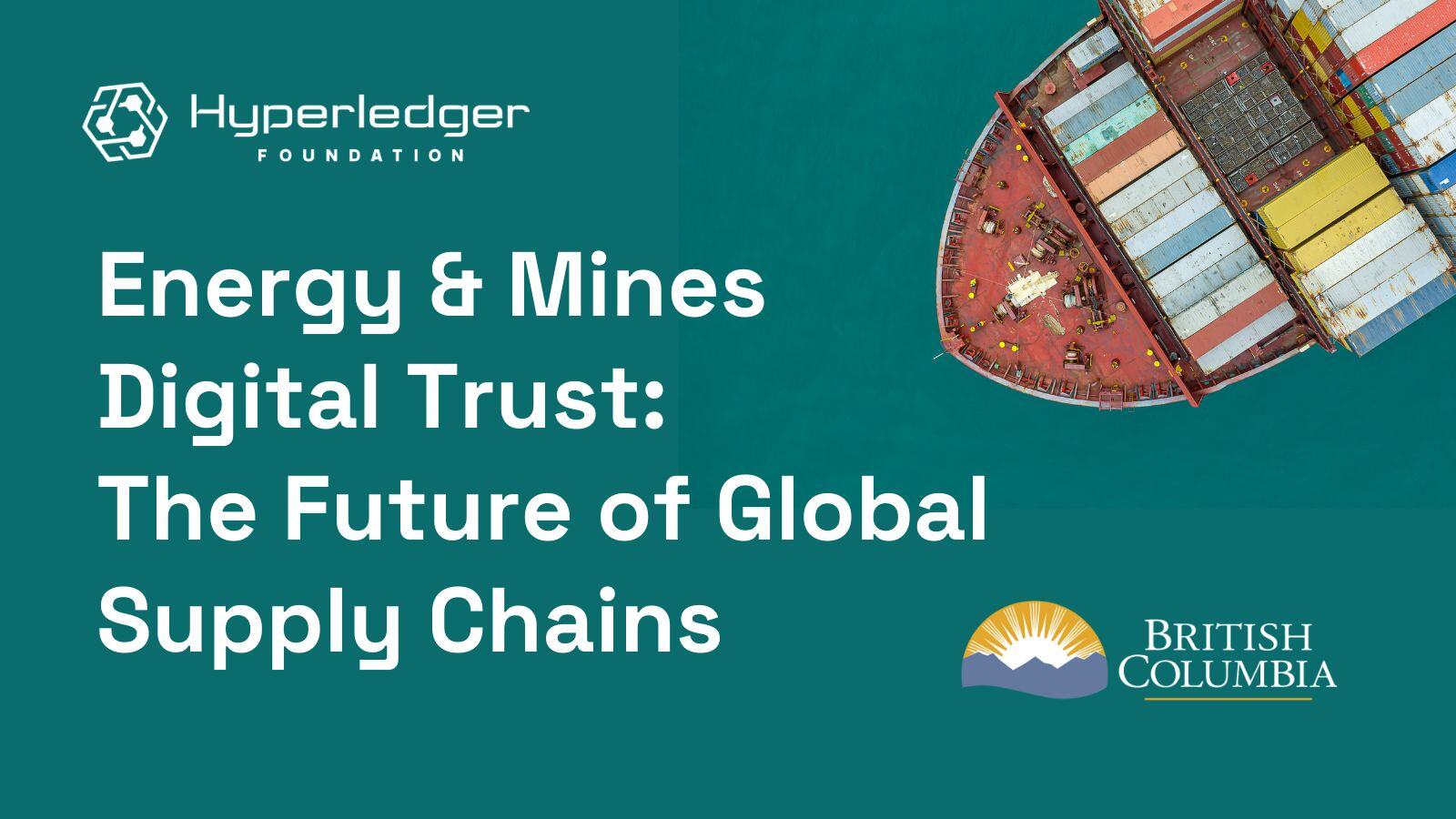Energy & Mines Digital Trust: The Future of Global Supply Chains

After two years of piloting, Energy & Mines Digital Trust (EMDT) has successfully launched two digital credentials, reshaping how mining operators in British Columbia (B.C.) share verified data. As the project evolves, EMDT is working with the United Nations to explore how digital trust technology can improve cross-border trade and supply chain traceability, while further lowering the barriers to entry for companies worldwide.
EMDT brings together industry experts – including mining companies, industry associations, and more – to create digital tools that enable natural resource companies to seize a competitive advantage in emerging sustainability-focused markets.
As stricter sustainability regulation is established worldwide, compliant companies must be able to share verifiable proof of their responsible practices. Yet, companies lack affordable, interoperable digital tools to share sustainability data with regulators, investors, and customers.
EMDT proves that digital trust technology provides a solution, enabling natural resource companies with access to simple, low-cost tools to share verified data. Using digital credentials, companies can more easily meet investor and customer demand for trustworthy sustainability data, and better compete in emerging markets that prioritize sustainable goods.
DIGITAL CREDENTIALS IN PRODUCTION
With digital credentials, EMDT has opened the door for mines in B.C. to share authoritative, audited data, increasing the credibility of their sustainability claims. Participating B.C. mining operators can now securely exchange verified data using two digital credentials:
B.C. Mines Act Permit: Major mine operators in B.C. can receive the Mines Act Permit digital credential, enabling them to prove their  permit status quickly and securely during business interactions. Using this credential, mines can prove they operate in a jurisdiction with strong mining regulation, in line with global environmental, social, and governance (ESG) goals. Verified data from the Government of British Columbia solidifies their credibility on a global scale.
permit status quickly and securely during business interactions. Using this credential, mines can prove they operate in a jurisdiction with strong mining regulation, in line with global environmental, social, and governance (ESG) goals. Verified data from the Government of British Columbia solidifies their credibility on a global scale.
Towards Sustainable Mining: Through collaboration with the Mining  Association of Canada, participating mines can utilize digital credentials to submit Towards Sustainable Mining scores. Mining operators can also use their TSM credential to share verified ESG data with customers, investors, and more, improving competitiveness in emerging sustainability-focused markets.
Association of Canada, participating mines can utilize digital credentials to submit Towards Sustainable Mining scores. Mining operators can also use their TSM credential to share verified ESG data with customers, investors, and more, improving competitiveness in emerging sustainability-focused markets.
EMDT uses Traction, an enhanced multi-tenant Hyperledger Aries Cloud Agent Python (ACA-Py) enterprise wallet developed by the Government of British Columbia, that provides agents to multiple B.C. government authorities. The Government of B.C. uses Traction to establish DIDComm connections directly to mining operators’ corporate wallets to securely issue digital credentials, including the Mines Act Permit credential, using Hyperledger Aries protocols.
Through close collaboration with technical partners, including Northern Block Inc., EMDT explored how best to enable technical interoperability for participating mines. Mining operators can adopt any Hyperledger Aries-compatible corporate wallet of their choice to send and receive digital credentials with the Government of B.C. Alternatively, since Hyperledger Aries is open source, organizations can develop their own, customized corporate wallet, reducing industry costs to exchange authoritative digital credentials.
The full potential of digital credentials can only be realized when a range of diverse, international organizations can send and receive data in this way. Through launching two credentials, EMDT learned that minimizing barriers is key to encouraging greater adoption and global scaling of the technology.
EXPLORING GLOBAL OPPORTUNITIES
To support international adoption, the B.C. Government is leading a project in collaboration with the United Nations to establish the United Nations Transparency Protocol (UNTP), a framework for international data exchange in global supply chains. The UNTP will present protocols and guidelines to support governments and organizations in sharing supply chain data in a trusted, accessible, and standardized way.
Supply chain actors need a solution that is easy to use and that builds on current data management systems. To accomplish this, UNTP will leverage a broad range of technologies, including digital credentials. For example:
- A participating mine might use Hyperledger AnonCred digital credentials. In this instance, the mine could exchange verified information with any organization using a compatible wallet and use selective disclosure to share only the information they choose.
- Another mine in Australia might use JSON-LD digital credentials to publish trusted, tamper-proof public data to an online registry, without the use of ledgers. There is no need for the mine, or members of their network, to have a digital wallet to access this information.
The Government of B.C. is currently working to implement the UNTP, leveraging Traction.
By implementing a simple protocol that can be supported by existing business systems, supply chain actors will realize immediate benefits as visible contributors to the sustainability of global supply chains.
SUPPORTING INTERNATIONAL ADOPTION
With simple and secure methods to prove sustainability performance, supply chain actors can better compete in global markets that prioritize sustainable goods. EMDT has marked a significant milestone in transforming mining operations in British Columbia with the use of digital credentials to enhance sustainability and regulatory compliance. As the UNTP develops, this work will set the stage for broader international supply chain trust and traceability.
Learn more about Energy & Mines Digital Trust and the UN Transparency Protocol below:
Energy & Mines Digital Trust is funded by the Strategic Investment Fund in partnership with the Government of B.C. and TELUS.
